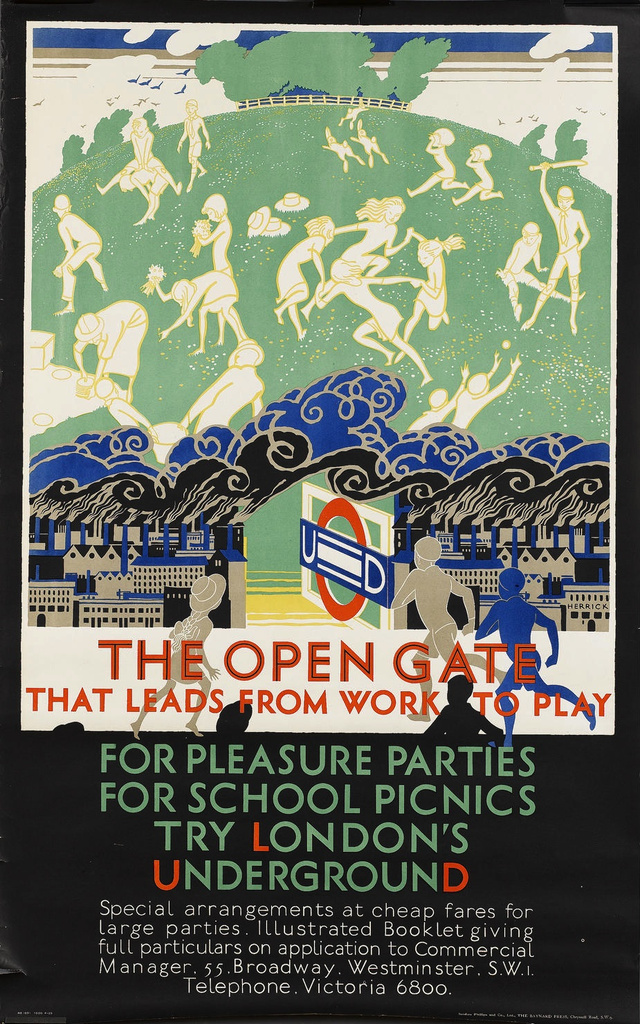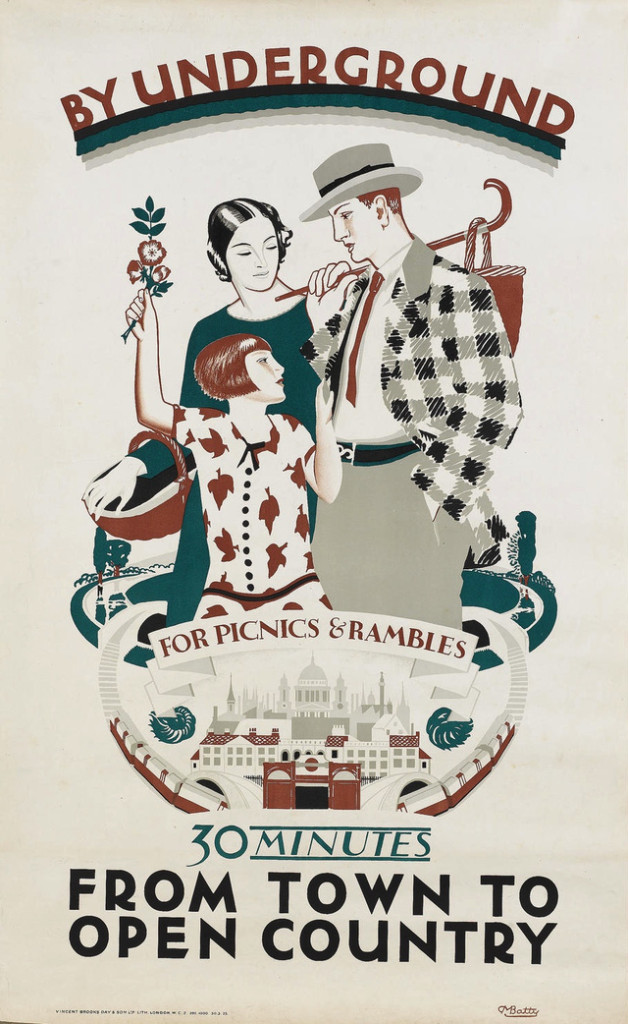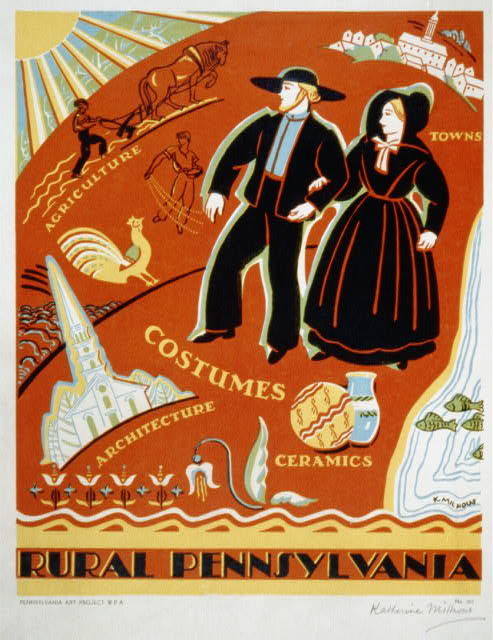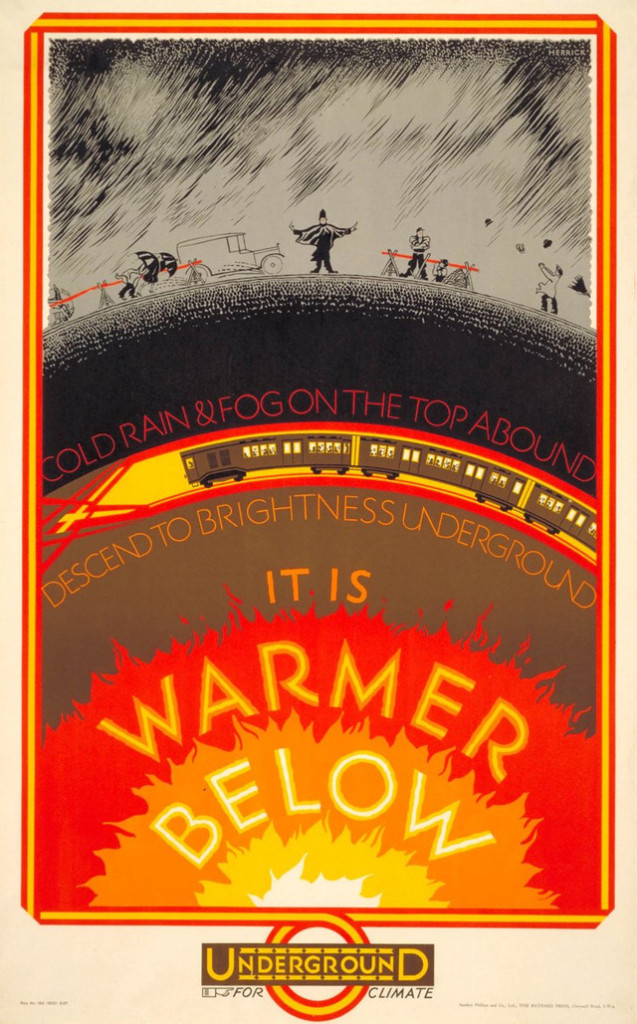Via io9 this week, a collection of 1920s posters advertising the London Underground. The images are worth a browse; they’re all entertaining in their own way, but I was drawn, of course, to the few promoting access to the delights of the country.
I will admit that despite my suspicion of everything institutional I love the posters of that era — the World War I propaganda, the gleefully innocent embrace of modernity, the WPA style of the 1930s. The best of them were so stylized as to evoke a kind of magical reality divorced from the real one: lovely to behold, useful in advertising, dangerous in the real world. In this collection the Underground promises access to the wonders of the city. There’s a five senses series about seeing, hearing, touching, smelling, and tasting the riches of London; there are invitations to go shopping and a pair of dreamy images of summer days and summer nights.
Others make clear not all is well within the city limits. Here the Underground is “the open gate that leads from work to play,” a passage away from a blocky, smoky, smoggy city to a sweeping dance of playful children:
The children are nearly faceless, cloud-white with golden outlines as one might draw angels. A vision of heaven, perhaps, in a park.
Go further and the city disappears. “Underground for picnics and rambles,” this one promises. Only “30 minutes from town to open country”:
The mother and child are fashionably coiffed but comfortably dressed for the twenties; the girl has plucked some flowers. The father has put off his business suit in favor of a casual checked blazer, and he carries a picnic basket on the end of a cane that may as well be a shepherd’s crook. Father and daughter both seem to say, look what I found! But in celebrating the open country the poster embraces the city life as firmly as those promoting fine dining and the theater. The family is merely playing dress-up, a bourgeois caricature of village life; tonight they’ll wear black tie and gown. The country is “open,” free not only of buildings and smog and soot but of real people and their annoying preconceived notions of how things ought to be. It’s a blank canvas, on which they can paint their own fantasies.
It’s a common theme, of course, the open country as urbanite’s playground; it’s been a common theme of advertising for far more than a hundred years. Compare this WPA poster promoting “Rural Pennsylvania,” drawn a decade later on the other side of the Atlantic; it’s a fantasy montage of country icons. Agriculture, that messy fact of rural life, is safely in the background, with the sun shining pleasantly upon it.
What sets the Underground’s advertising apart, I think, is the ease of getting to that “open country.” You simply go underground, the city disappears above you, and you emerge away. Much of that 30 minutes’ train ride was in practice surely spent above ground, but we’re asked to imagine an almost magical transport from one place to another with no experience of distance or division, no sense that anything lies between the two, not even a fence or a border. That other place, the country, is neatly disconnected from our own and therefore, in effect, from any real place. The mode of travel underscores the imaginary nature of that rural retreat. It presages the era of air travel, when travelers disappear into little boxes and re-emerge in other places which, not coincidentally, have become as placeless as any that humans have ever conceived. (I was thinking of airports as I wrote that sentence, but it’s increasingly true of the cities themselves.)
But my favorite poster from the collection is this one, which suggests — one presumes unintentionally — that the Underground may not be quite so benign a place after all.
Lurking underground beneath the Underground, can that be anything other than the fires of hell? In which case the Underground is a sort of Limbo above Hell’s gate — and Limbo is the most placeless place of all, an eternal waiting room between worlds. Dante’s Virgil described it as the eternal home of those who, though virtuous, “did not worship God correctly…. For this defect, and for no other fault, we are lost, and we are only tormented, in that without hope we live in desire.” Without hope we live in desire. A pretty good epitaph for a collection of advertisements, I think.



